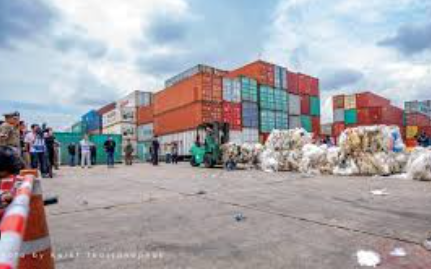Why Do Developed Nations Send Plastic Waste to Thailand and Beyond?
Introduction
Plastic waste management is a global challenge, and developed countries often send their plastic waste to nations like Thailand, Malaysia, and Indonesia. This practice has raised environmental and ethical concerns, as many recipient countries struggle to manage the overwhelming influx of waste. But why do these wealthier nations export their plastic waste instead of dealing with it themselves? This article explores the economic, environmental, and regulatory reasons behind this phenomenon.
Cost-Effectiveness of Exporting Waste
One of the primary reasons developed countries export plastic waste is cost savings. Recycling and waste disposal in countries like the U.S., Canada, and European nations can be expensive due to strict environmental regulations and high labor costs. By shipping waste to countries where processing costs are lower, companies and governments save money while still appearing to manage their waste responsibly.
Thailand and similar countries have lower wages and fewer regulations, making waste processing more affordable. This economic disparity creates an incentive for richer nations to send their waste abroad rather than investing in expensive domestic recycling facilities.
Loopholes in International Waste Regulations
Despite global agreements like the Basel Convention, which aims to regulate hazardous waste movement, many loopholes exist that allow plastic waste exports to continue. Many developed nations label their waste as “recyclable materials” rather than hazardous waste, skirting regulations that would otherwise prevent the transfer.
Some companies take advantage of lax enforcement in recipient countries, bypassing international laws to ship contaminated or non-recyclable plastics. This legal gray area means that large quantities of plastic waste, including non-recyclable and toxic materials, still find their way to countries like Thailand.
The Role of the Recycling Industry
The global recycling industry plays a crucial role in plastic waste exports. Many developed nations lack the infrastructure to process their plastic waste efficiently. Instead of investing in domestic recycling plants, they sell the waste to foreign companies that claim to recycle it.
In Thailand, a growing number of waste-processing facilities have emerged to handle imported plastics. However, not all of this waste is actually recycled. Some facilities sort high-value plastics while dumping or burning the rest, contributing to pollution and environmental hazards.
Environmental Consequences in Thailand
While developed nations benefit financially from exporting waste, recipient countries like Thailand face severe environmental consequences. Many plastic shipments contain mixed or contaminated plastics, making proper recycling difficult. As a result, large amounts of plastic end up in landfills, rivers, or illegal dumping sites.
The improper disposal and burning of plastic waste release toxic chemicals into the air, soil, and water, endangering local communities. This has led to significant environmental degradation, with some areas suffering from severe air and water pollution. The influx of plastic waste has also placed a heavy burden on Thailand’s waste management infrastructure, which is not equipped to handle such large quantities.
Social and Health Impacts on Local Communities
Beyond environmental damage, plastic waste imports negatively impact the health and well-being of Thai communities. People living near waste processing plants often suffer from respiratory issues due to air pollution caused by burning plastics. Contaminated water sources lead to health problems, including skin diseases and gastrointestinal illnesses.
Additionally, the informal waste-picking sector has grown in Thailand, with many workers, including children, sifting through plastic waste to collect valuable materials. These workers often lack protective gear, exposing themselves to hazardous chemicals and sharp objects. The poor working conditions and health risks make plastic waste processing a dangerous industry for many Thai citizens.
Thailand’s Response and Policy Changes
Recognizing the growing problem, the Thai government has taken steps to curb plastic waste imports. In 2018, following China’s ban on foreign plastic waste, Thailand announced plans to restrict and eventually ban plastic waste imports by 2025.
Stricter regulations on waste imports, improved monitoring of recycling facilities, and increased domestic recycling initiatives are being implemented to reduce dependency on imported plastic waste. However, challenges remain, as some illegal waste shipments continue to enter the country despite these efforts.
The Future of Plastic Waste Management
The global community must work together to address plastic waste issues. Developed nations should invest in better domestic recycling infrastructure, reduce plastic production, and promote sustainable alternatives. Meanwhile, recipient countries like Thailand should strengthen regulations and enforce stricter penalties for illegal waste imports.
International cooperation, increased consumer awareness, and innovative recycling solutions are essential to creating a sustainable future where plastic waste is managed responsibly without harming vulnerable communities.
Conclusion
The export of plastic waste from developed nations to countries like Thailand highlights significant economic, regulatory, and environmental challenges. While it may be cost-effective for wealthier nations, the practice has devastating consequences for recipient countries. A global shift toward responsible waste management, stricter policies, and sustainable alternatives is necessary to tackle this growing crisis and protect both people and the planet.


Leave a Comment